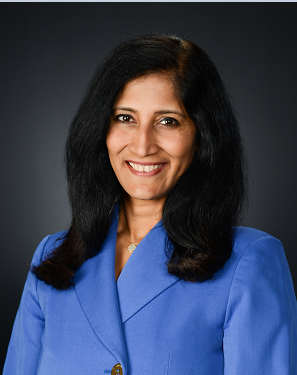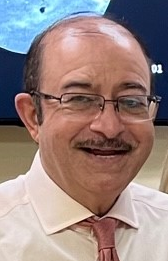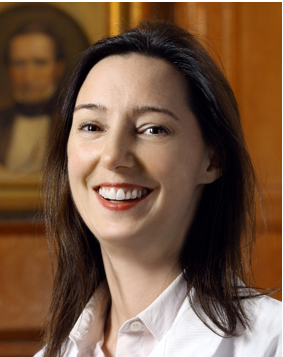 Dr. Vasu Appalaneni
Dr. Vasu Appalaneni
 Dr. Kamran Ayub
Dr. Kamran Ayub
 Dr. Anne Marie Lennon
Dr. Anne Marie Lennon
 Dr. John A. Martin
Dr. John A. Martin
1. In what ways do you lead in your unit/practice? Did you volunteer to be a leader or “fall” into leadership?
Vasu Appalaneni, MD, MBA, FASGE, Executive Vice President, Clinical Innovation, One GI: I am the executive vice president for clinical innovation at One GI. We have more than 50 GI practices in seven different states, over 150 gastroenterologists and 1500 employees. I was involved for the last 15 years with the executive leadership team locally at Dayton Gastroenterology. Once we partnered with One GI in 2021, I had the opportunity to be on the national One GI executive leadership team, for which I am involved with innovation to improve efficiency, quality, and patient and physician experience and to help our teams embrace the changes as we continue to build and integrate the practices.
Kamran Ayub, MD, FASGE, Silver Cross Hospital: Director for the center of advanced endoscopy. I was asked to assume the medical director position 14 years ago by the hospital administration.
Anne Marie Lennon, MD, PhD, MASGE, John Hopkins Hospital: I lead the division of gastroenterology and hepatology at Johns Hopkins, with 69 faculty members and 151 fellows, advanced practice providers and staff members, at five hospital locations in two states. As for volunteering or falling into leadership, a little of both. I learned at the ASGE Leadership Education and Development Program to raise my hand when an opportunity presents itself, and that’s exactly what I did. My first leadership role was a clinical director, in which I learned a lot about administration, finances and human resources. Leading a division is very different from clinical care, research or education, and there is a lot to learn; however, this led me to where I wanted to be.
John A. Martin, MD, FASGE, Mayo Clinic: Endoscopy unit operations, supply chain management/purchasing/contracting, health information management systems/electronic health records, revenue cycle management/billing/coding, recruitment, credentialing/privileging, and advanced endoscopy training program director for the past 16 years – at Mayo Clinic for the past 8 and at Northwestern in Chicago before that. I was asked to assume leadership roles at Northwestern and nominated, then chosen, at Mayo Clinic.
2. What are some of the challenges in team development and leading them?
Dr. Appalaneni: Change is hard, and not knowing what is going to change is even harder. When we partner with new entities or bring new treatment or management initiatives, it is extremely important to have the best communication possible. Being transparent to communicate what we know, what we don’t know and where we are headed helps alleviate the fear of change. Providing resources for better understanding and education helps build team development. Cross-functional teams work better than silo teams or departments. If every team is looking for their own productivity, it may not favor the whole organization or serve its purpose or strategy.
Dr. Ayub: My mission was to develop an advanced endoscopy team at the hospital. Selecting four to five nurses out of more than 20 to become part of an advanced endoscopy team and expertise in advanced endoscopy was a major challenge. All the nurses wanted to join this elite team. We created some criteria to qualify for the team, including, but not limited to, 80% or more full-time equivalent hours, willingness to stay late for interventional cases, willingness to work extra weekends if needed, and certification by the Society of Gastroenterology Nurses and Associates if applicable. The rewards for this team include extra training in interventional procedures, including endoscopic retrograde cholangiopancreatography (ERCP), necrosectomy, endoscopic submucosal dissection and endoscopic ultrasound-directed transgastric ERCP, receiving a small pay raise, and taking part in courses and live demonstrations, etc.
Dr. Lennon: Administrative elements and politics can be interesting and are a key skill set you must develop. The act of balancing administrative duties, clinical care, research funding and teaching while trying to ensure a work life balance can be challenging.
Dr. Martin: Developing consensus can be hard but is imperative to attain up front. Achieving consensus before executing assures fewer disagreements and unhappiness going forward, greatly increases alignment and reduces the potential for subversion after a decision is made. Endoscopy team leadership requires being a leader and also a manager. These are two distinct roles, requiring different skills and differing talents. But the successful endoscopy leader almost always must succeed at both! Use data to drive your consensus and decision-making whenever evidence is available. Always remember that the ultimate beneficiary of your leadership skill, and your team's consensus-derived success, is the patient!